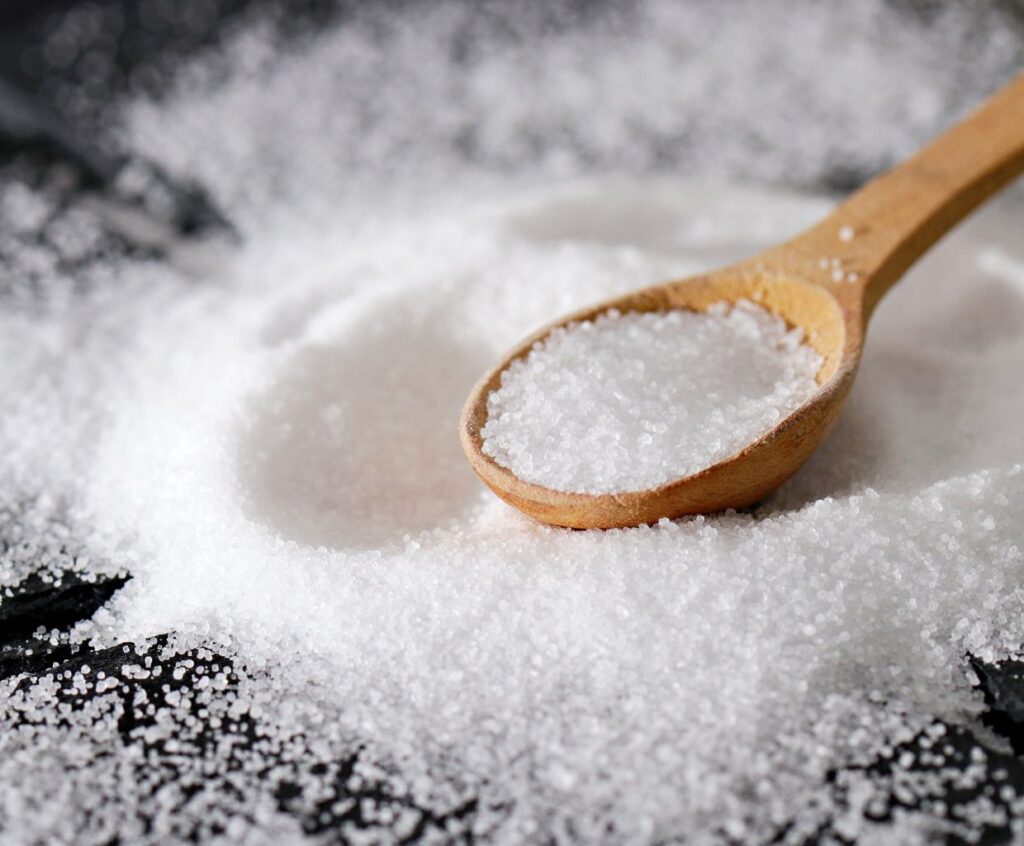Soaking Your Breasts in Epsom Salt: Benefits, Risks, and How to Do It Safely
Soaking in Epsom salt baths has become a widespread practice for relaxation and various health benefits. However, have you ever wondered if soaking your breasts in Epsom salt is safe and beneficial?
This article will explore the potential benefits, risks, and how to incorporate this practice into your self-care routine safely.

The Benefits of Soaking Your Breasts in Epsom Salt
While there is limited scientific research focused explicitly on soaking breasts in Epsom salt, many individuals claim to experience potential benefits, including:
-
- Relief from breast tenderness: Epsom salt may help alleviate breast tenderness or soreness discomfort.
-
- Reduced swelling: Soaking your breasts in Epsom salt solution may help reduce swelling, especially after breastfeeding or surgery.
-
- Improved circulation: The warm water and Epsom salt combination can promote blood flow, potentially improving overall breast health.
-
- Relaxation and stress relief: Epsom salt baths are known for their calming properties, which can help reduce stress and promote relaxation.
Potential Risks and Considerations
While Epsom salt is generally safe for external use, it’s essential to consider the following before soaking your breasts:
-
- Consult your healthcare provider: If you have any underlying health conditions or concerns, it’s always best to consult your healthcare provider before trying new self-care practices.
-
- Avoid open wounds or infections: If you have any open wounds or infections on your breasts, avoiding soaking them in Epsom salt may cause further irritation or discomfort.
-
- Moderation is vital: Excessive use of Epsom salt baths may lead to dry skin. Limiting the frequency of breast soaking to once or twice a week is recommended.
How to Safely Soak Your Breasts in Epsom Salt
Follow these steps to ensure a safe and enjoyable experience when soaking your breasts in Epsom salt.
-
- Prepare a warm Epsom salt solution: Dissolve half a cup of Epsom salt in a tub or basin filled with warm water. Stir well to ensure the salt is completely dissolved.
- Find a comfortable position: Sit or lie in a comfortable position that fully immerses your breasts in the Epsom salt solution.
- Soak for 15-20 minutes: Relax and soak your breasts for about 15-20 minutes. You may choose to listen to calming music or meditate during this time.
- Rinse with clean water: After the soaking session, gently rinse your breasts with clean water to remove any residue.
- Moisturize: Apply a gentle moisturizer or oil to your breasts after rinsing to prevent dryness.
Remember, self-care practices may vary from person to person, and what works for one individual may not work for another. It’s always essential to listen to your body and consult with a healthcare professional if you have any concerns or questions regarding the safety or effectiveness of a new self-care routine.
What are the potential risks of soaking breasts in Epsom salt?
Soaking breasts in Epsom salt can have potential risks, including:
1. Skin irritation: Epsom salt can cause skin irritation or allergies in some individuals. It may lead to redness, itching, or a rash on the breast skin.
2. Dryness: Epsom salt has a drying effect, so prolonged exposure to it may cause excessive dryness of the breast skin. This can lead to discomfort or flaking of the skin.
3. Infection: If the Epsom salt solution is not prepared or used clean and sterile, it can introduce bacteria or other microorganisms to the breast area, increasing the risk of infection.
4. Disruption of natural pH balance: Soaking breasts in Epsom salt can disrupt the skin’s natural pH balance. This may cause an imbalance in the skin’s microbiome, leading to potential skin issues or infections.
5. Sensitivity or allergies: Some individuals may be sensitive or allergic to Epsom salt. If you have a history of allergies or sensitivities, performing a patch test before soaking your breasts is recommended to check for any adverse reactions.
It is essential to consult with a healthcare professional before attempting any new or potentially risky practices, especially when it comes to sensitive areas like the breasts.
Can soaking breasts in Epsom salt help with breast pain?
There is limited scientific evidence to support the claim that soaking breasts in Epsom salt can help with breast pain. Epsom salt baths are commonly used for muscle relaxation and relieving minor aches and pains. However, breast pain can have various causes, including hormonal changes, injury, infection, or underlying medical conditions.
It is always recommended to consult a healthcare professional for an accurate diagnosis and appropriate treatment for breast pain.
Are there alternative remedies for breast pain besides soaking in Epsom salt?
There are several alternative remedies for breast pain that you can try besides soaking in Epsom salt. Here are a few options:
1. Warm or cold compress: Apply a warm or cold compress to your breasts to help alleviate pain and reduce inflammation. You can use a hot water bottle, warm towel, or ice pack wrapped in a cloth.
2. Supportive bra: Wearing a well-fitting and supportive bra can help reduce breast pain. Opt for a sports bra or a bra with extra support.
3. Gentle massage: Gently massaging your breasts can help improve blood circulation and reduce pain. Use circular motions and apply light pressure.
4. Over-the-counter pain relievers: Nonsteroidal anti-inflammatory drugs (NSAIDs), such as ibuprofen or naproxen, can relieve breast pain. However, consult with a healthcare professional before taking any medication.
5. Dietary changes: Some women find that reducing their caffeine intake or avoiding foods high in fat can help alleviate breast pain. It’s worth trying different dietary adjustments to see if they make a difference.
6. Herbal remedies: Certain herbs like evening primrose oil or chaste berry have been traditionally used to relieve breast pain. However, speaking with a healthcare professional before trying herbal remedies is essential, as they may interact with medications or have side effects.
Remember, if your breast pain persists or worsens, it is essential to consult with a healthcare professional for a proper diagnosis and appropriate treatment.

